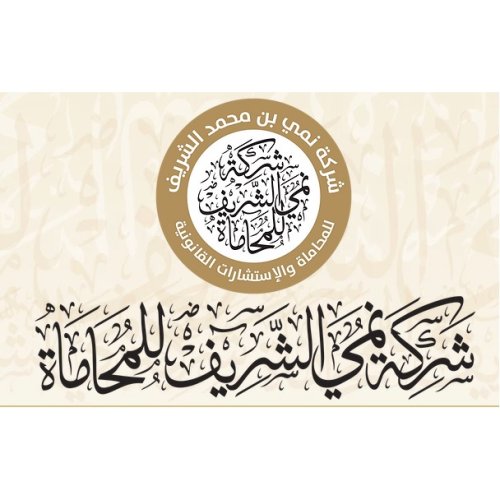Best Mining Law Lawyers in Makkah
Share your needs with us, get contacted by law firms.
Free. Takes 2 min.
List of the best lawyers in Makkah, Saudi Arabia
About Mining Law in Makkah, Saudi Arabia
Mining Law in Makkah, and more broadly in Saudi Arabia, governs the exploration, extraction, and processing of mineral resources such as gold, phosphate, copper, and silica. The Saudi government regulates these activities through a set of laws and regulations that aim to support responsible mining, attract investment, and protect the environment and local communities. The Ministry of Industry and Mineral Resources is the primary authority overseeing mining operations in the Kingdom, including the holy city of Makkah. Mining laws are designed to ensure resources are used efficiently while minimizing negative impacts on society and the environment.
Why You May Need a Lawyer
Many situations can arise in which individuals, investors, or companies need legal assistance in the mining sector in Makkah. Some common reasons include:
- Understanding the complex regulatory landscape for obtaining mining licenses and permits
- Negotiating contracts or agreements with mining partners, local landowners, or government agencies
- Resolving disputes related to land ownership, mineral rights, or operational boundaries
- Ensuring compliance with environmental and safety regulations
- Navigating foreign investment rules and joint ventures involving mining assets
- Litigating matters arising from mining accidents, environmental damage, or contract breaches
- Conducting due diligence before acquiring or investing in a mining entity
- Accessing legal remedies or appealing administrative decisions
Given the high value of mineral resources and the potentially serious legal consequences of non-compliance, expert legal guidance is often crucial.
Local Laws Overview
The legal framework for mining in Makkah, Saudi Arabia is primarily governed by the Mining Investment Law, issued by Royal Decree No M/140 dated 9/11/1441H (July 2020), and its executive regulations. This law aims to foster investment and development in the mining sector while balancing safety and environmental stewardship.
- Licensing: Several types of licenses are required for reconnaissance, exploration, exploitation, and mining operations. Each license has its own set of requirements and validity periods.
- Foreign Investment: Foreign entities can participate in mining projects but may need a local Saudi partner and must comply with specific investment laws.
- Environmental Protection: Stringent environmental assessments and safeguards are mandated before any mining activity can begin, and companies must submit rehabilitation plans for affected land.
- Land Use: Special rules apply within proximity to holy sites in Makkah. Permission from religious and governmental authorities may be needed to operate in certain zones.
- Royalties and Taxes: The state imposes royalties, fees, and taxes on mining yields, calculated according to the type and quantity of minerals extracted.
- Local Content: Companies are encouraged to employ Saudi nationals and contribute to local economic development.
- Dispute Resolution: Disputes may be settled via administrative appeal, Saudi courts, or, in contractual matters, potentially through arbitration based on relevant agreements.
Frequently Asked Questions
What types of minerals can be legally mined in Makkah?
The Mining Investment Law covers a range of minerals including precious metals like gold and silver, base metals, industrial minerals, and construction materials. Some areas may have restrictions due to religious or environmental reasons.
Do foreign investors need a local partner to engage in mining activities?
While foreign investors can participate directly in mining, certain projects may require joint ventures or partnerships with Saudi nationals depending on the project's nature, location, and strategic importance.
How long does it take to obtain a mining license in Makkah?
License processing times can vary depending on the type and scope of the proposed activity. After submitting all required documents, it may take several months, especially if environmental or religious site evaluations are needed.
What are the main regulatory authorities for mining in Makkah?
The Ministry of Industry and Mineral Resources is the main regulatory body. For environmental matters, the National Center for Environmental Compliance and the Ministry of Environment, Water, and Agriculture may also be involved. Local municipal authorities may play a role in site-specific approvals.
Can mining activities be conducted close to the holy sites of Makkah?
Mining near the holy sites is highly regulated and often restricted to preserve religious sanctity, safety, and the environment. Special permissions are required, and many areas may be entirely off-limits for mining operations.
What environmental protections must mining companies follow?
Mining companies must conduct comprehensive environmental impact assessments, implement approved mitigation measures, and restore land after operations. Non-compliance can result in heavy penalties or loss of license.
Are there financial guarantees required for mining licenses?
Yes, applicants typically must provide financial guarantees or performance bonds to cover rehabilitation and potential damages resulting from mining activities.
How are mining disputes resolved in Makkah?
Disputes are usually resolved first by administrative appeal to the regulatory body. If unresolved, parties may take the matter to the Saudi judicial system or, for contract-based disputes, pursue arbitration if stipulated in the agreement.
Can individuals or small businesses apply for mining rights?
Yes, individuals and small entities can apply for certain types of mining licenses, particularly for smaller scale or quarry operations, provided they meet all legal and financial requirements.
What are the penalties for unauthorized mining activities?
Unauthorized mining or breaches of license terms can lead to significant penalties, including fines, confiscation of equipment, invalidation of licenses, and potential criminal charges.
Additional Resources
- Ministry of Industry and Mineral Resources - Main regulator for mining activities
- Saudi Geological Survey - Provides data and studies about mineral resources
- National Center for Environmental Compliance - Oversees environmental regulations and assessments
- Makkah Regional Municipality - Local regulations and permits related to land use
- Saudi Arabian General Investment Authority (SAGIA) - Foreign investment procedures and information
- Chamber of Commerce in Makkah - Support for businesses and investors including legal references
Next Steps
If you are considering getting involved in mining in Makkah, or if you are facing a mining-related legal issue, here are the steps you should take:
- Clarify your objectives, whether they involve investment, business establishment, dispute resolution, or regulatory compliance.
- Gather all relevant documents, such as land ownership papers, environmental reports, business licenses, or existing contracts.
- Consult with a qualified lawyer who specializes in mining law in Saudi Arabia. Choose someone experienced with local regulations and the specifics of operating in Makkah.
- Contact relevant government bodies for information on specific permits or requirements for your intended activities.
- Stay informed about periodic updates to the Mining Investment Law and related executive regulations as these can affect your rights and obligations.
- Document all communications and agreements carefully, especially when dealing with government agencies, landowners, or business partners.
- If a disagreement or incident arises, seek legal advice early to explore your options and avoid escalating risks or penalties.
Proper legal support can ensure that your mining activities in Makkah proceed smoothly, in compliance with Saudi laws and local sensitivities.
Lawzana helps you find the best lawyers and law firms in Makkah through a curated and pre-screened list of qualified legal professionals. Our platform offers rankings and detailed profiles of attorneys and law firms, allowing you to compare based on practice areas, including Mining Law, experience, and client feedback.
Each profile includes a description of the firm's areas of practice, client reviews, team members and partners, year of establishment, spoken languages, office locations, contact information, social media presence, and any published articles or resources. Most firms on our platform speak English and are experienced in both local and international legal matters.
Get a quote from top-rated law firms in Makkah, Saudi Arabia — quickly, securely, and without unnecessary hassle.
Disclaimer:
The information provided on this page is for general informational purposes only and does not constitute legal advice. While we strive to ensure the accuracy and relevance of the content, legal information may change over time, and interpretations of the law can vary. You should always consult with a qualified legal professional for advice specific to your situation.
We disclaim all liability for actions taken or not taken based on the content of this page. If you believe any information is incorrect or outdated, please contact us, and we will review and update it where appropriate.











